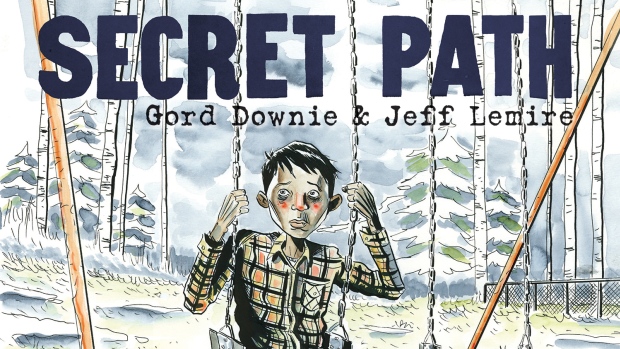We find ourselves in a lull between the final concert of The Tragically Hip and the inevitable passing of the Canadian icon Gord Downie due to his struggle with terminal brain cancer. There seem to have been many music icons that have passed away in the recent years and several others that seem to be nearing their own respective ends. Leonard Cohen taunts death and God in his recently released You Want It Darker, as he too nears the end of his life.
But Gord Downie, rather than face death and stare it in the face as Cohen does, is not done living. Instead, he has authored what may be his final work, an album dedicated to the story of Chanie Wenjack, a First Nations boy who died on October 22, 1966, trying to escape on foot down the railroad tracks from the Cecilia Jeffrey Indian Residential School. Downie, with this final contribution he has to make, donates it to an issue which is still so raw and unresolved, even in the face of last year’s Truth and Reconciliation Commission report. His work doesn’t staunchly advocate for, or take a political stance on either side. Instead, he brings to light a specific narrative of the suffering of a child within the system. Downie brings his expertise in songwriting and storytelling to Chanie Wenjack’s story in how this album originally started as a collection of 10 poems and by the end of Downie’s process, he’d collaborated with other artists to create a graphic novel, an animated movie, and held panel discussions surrounding the content and multimedia release of the album.
The album feels truly Canadian, both overtly and covertly. Downie references freedom as a strong theme on this album, a theme that is at face value core to the American identity, yet Canada potentially has more ownership of this value due to the inclusivity and multiculturalism of its society. Even his backing audio pushes a Canadian vibe, the fade out of “Swing Set” is the sounds of Canadian geese flying overhead. Covertly, the tone of the album feels open to the wide spaces between the mountains and forests and plains of Canada; it seeks reparation and peace in content and in character.
Downie also manages to catch the essence of being a kid: “And the freezing rain and the ice pellets coat the rail, so I can’t even tightrope it,” he writes on the title track “Secret Path” about the train tracks that Chanie died walking down.
The album draws chills each time you listen, I’m still not sure if it’s because of the winter vibes of Chanie’s story or if it’s because of the message being relayed. “Haunt them. Haunt them. Haunt them,” he repeats in the chorus of the track by the same name. His tactfully executed echoes and bare piano solo on “Secret Path” are the highlight of the entire album. I’d recommend listening to the album as a whole, as each of the tracks work in conjunction with one another. The story isn’t a narrative like you’d read in a book, it’s told through each of the songs as a collection of poetry. Downie doesn’t explicitly state each step, but the journey of Chanie as he runs away is portrayed in snapshots and anecdotes mixed with his thoughts and emotions. Downie uses his trademark matter-of-fact tone and vocabulary to contribute to the terse and juvenile, yet raw perspective of the experience he imagines that Chanie would have dealt with. In the context of the passing of Chanie, and Downie’s battle with terminal cancer, lines like “I have the rest of my whole life” take on a terrifying layer of meaning.
If Radiohead and Arcade Fire ever collaborate, this album probably wouldn’t be too far off from what they might create. “Swing Set” is the most like an Arcade Fire track while “The Only Place To Be” is a little closer to Radiohead. Despite the similarities to other artists, Secret Path holds its own. This album is essential listening if you love Canada, have any interest in the residential schools and how that has played a role in Canadian history, or are curious about the legacy that Gord Downie is leaving.


